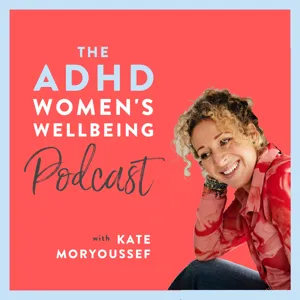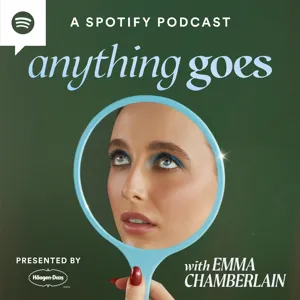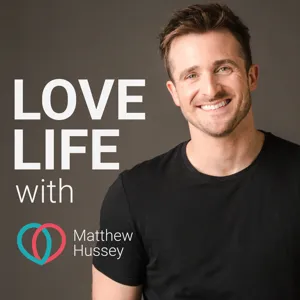Podcast Summary
Understanding the Impact of ADHD on Relationships: ADHD can cause imbalances in executive functioning tasks, leading to feelings of infantilization, self-doubt, and frustration. Effective communication, self-awareness, and seeking professional help are crucial for navigating the complexities of relationships with ADHD.
ADHD can significantly impact relationships, leading to various challenges and feelings of frustration for both partners. Melissa Orlov, an expert on the topic, shared her insights from years of counseling ADHD couples. One common issue is the imbalance in executive functioning tasks between partners, which can result in feelings of infantilization or gratitude, but also self-doubt and a sense of being a grown adult who should be able to handle things independently. Melissa emphasized the importance of recognizing and addressing these feelings, as they can contribute to deeper relationship issues. Another crucial point is the need for effective communication and understanding between partners, as well as seeking professional help when needed. Overall, the discussion highlighted the importance of self-awareness, compassion, and open dialogue in navigating the complexities of relationships when living with ADHD.
Recognizing and Appreciating Strengths in ADHD Partnerships: Understanding and valuing individual strengths in ADHD partnerships can lead to a more balanced, supportive relationship. Avoid self-criticism and societal comparisons, focusing on personal contributions instead.
People with ADHD, including women, may struggle with certain organizational tasks but excel in other areas. It's essential to recognize and appreciate these strengths, leading to a more equal and supportive partnership. Self-criticism and comparison to societal expectations can be detrimental, so it's crucial to acknowledge and value personal contributions to the relationship. Women, in particular, may face additional pressure as societal norms dictate specific roles and responsibilities. By recognizing these challenges and focusing on individual strengths, couples can foster understanding, support, and a more balanced partnership.
Women with ADHD face unique challenges in balancing work and household responsibilities: ADHD can lead to relationship strains and potential breakdowns, but proper diagnosis and support can help improve relationships. Society's expectations and ADHD symptoms can create a double burden, but understanding and accommodation are key.
Women with ADHD face unique challenges in balancing work and household responsibilities due to societal expectations and their own executive function difficulties. This double burden can lead to relationship strains and potential breakdowns, especially as the repetitive patterns of ADHD symptoms interfere over time. However, with proper diagnosis and support, it's possible to change these patterns and improve relationships. Unfortunately, many adults with ADHD are undiagnosed, leading to misunderstandings and misinterpretations of symptoms in their partnerships. It's essential for partners to understand that ADHD does not reflect a lack of love or commitment, but rather a neurological condition that requires accommodation and understanding. Overall, awareness and education about ADHD are crucial for individuals and couples to navigate these challenges and build strong, supportive relationships.
Navigating the Complexities of an ADHD Diagnosis in a Relationship: Learn to correctly interpret and manage ADHD symptoms, respond in a healthy and supportive way, and remember that ADHD is just one aspect of the relationship dynamic.
An ADHD diagnosis in a relationship can be a complex issue requiring compassion, empathy, and understanding from both partners. While ADHD symptoms like chronic distractibility and difficulty organizing are specific to the condition, human responses to these symptoms can also significantly impact the relationship. Misinterpretations of distractibility, for instance, can lead to resentment and conflict. To navigate these challenges, couples need to learn how to correctly interpret and manage ADHD symptoms, as well as respond in a healthy and supportive way. This may involve grieving past misunderstandings and finding new ways to communicate and connect. It's important to remember that ADHD is just one aspect of the relationship dynamic, and both partners play a role in creating a harmonious partnership.
Understanding ADHD and managing relationships: Awareness and compassion are crucial when dealing with ADHD relationships. Recognize triggers, manage emotional dysregulation, break generational patterns, and seek help for anger management.
Awareness and compassion are crucial in managing relationships when dealing with ADHD. While awareness helps in recognizing and distancing oneself from triggers, it's essential to remember that tendencies towards distress and emotional dysregulation still exist. ADHD is highly hereditary, and as more adults get diagnosed, there's an opportunity to break generational patterns. Dealing with dysregulation is key, as the ADHD brain is reward-focused and highly emotional, leading to intense reactions and avoidance behaviors. Anger management is also vital, as partners don't deserve to be on the receiving end of rage, even if it's challenging to control. Seeking help from a therapist can be beneficial in managing emotional responses.
Effective self-management for individuals with trauma or ADHD: Cognitive behavioral therapy, mindfulness, exercise, verbal cues, supplements, emotional regulation techniques like EFT tapping, and specific formulas for focus, mood, and sleep can all contribute to improved emotional management for individuals with trauma or ADHD, leading to a better quality of life.
Effective self-management for individuals, particularly those with trauma or ADHD, involves a combination of approaches. Cognitive behavioral therapy, mindfulness, exercise, and verbal cues with partners are all useful tools for managing emotional extremities. Additionally, supplements can support overall wellbeing, with specific blends addressing focus, mood, and sleep. The speaker personally recommends Nubria supplements, which offer a range of formulas designed to optimize mental performance, emotional balance, and sleep quality. Regular emotional regulation techniques, such as EFT tapping, can also help manage emotional dysregulation and temper. For women with ADHD, hormonal fluctuations can further complicate emotional control, requiring extra effort and time. Overall, prioritizing self-care and exploring various methods can lead to improved emotional management and a better quality of life.
Managing ADHD in relationships: Physiological, executive function, and interactive strategies: Effective communication, self-care, and partner support are essential for managing ADHD in relationships. Physiological strategies include medications, exercise, and sleep, while executive function strategies involve creating systems to manage tasks. Interactive strategies focus on communication and response during emotional situations.
Managing ADHD and emotional well-being in relationships involves a holistic approach with three key components: physiological, executive function, and interactive strategies. The physiological component includes practices like medications, exercise, and sleep to change the brain. The executive function component involves creating systems to help manage tasks and remember things. The interactive strategies component focuses on how couples communicate and respond to each other during emotional situations. It's important for both partners to be involved and committed to these strategies. Additionally, women with ADHD may experience worsening symptoms during perimenopause and menopause, making it crucial to explore hormone replacement therapy and other tools for managing symptoms during this time. Overall, effective communication, self-care, and support from a partner are essential for managing ADHD and fostering healthy relationships.
Adults with ADHD face deep pain and shame from past experiences: Adults with ADHD may feel deep pain and shame due to past experiences, often linked to childhood memories of undiagnosed parents or critical feedback. Practicing self-compassion and focusing on positives can help reduce shame and improve relationships.
Many adults with ADHD experience deep pain and shame due to past experiences of forgetting important things or not meeting expectations, which can lead to excessive self-criticism and perfectionism. These feelings are often linked to childhood memories of being parented by undiagnosed ADHD parents or receiving critical feedback from others. Women with ADHD in particular may struggle with these emotions and feel the need to overcompensate. It's important to remember that small mistakes won't define a child's life and that focusing on the positives and accepting imperfections can help reduce shame and improve relationships. Additionally, partners can unintentionally reinforce these feelings through their own expectations, leading to damaging parent-child dynamics. Overall, it's crucial for adults with ADHD to practice self-compassion and seek support to manage these emotions and build healthy relationships.
Breaking free from rigid roles for a thriving ADHD relationship: Couples with ADHD should focus on individual strengths and complementary abilities, with the non-ADHD partner providing space and support for the ADHD partner to optimize management and self-advocacy.
For couples dealing with ADHD, it's essential to break free from rigid, societally-enforced roles and work towards a relationship that thrives based on individual strengths and complementary abilities. The non-ADHD partner should provide space and support, allowing the ADHD partner to take a more significant role and optimize their ADHD management for dependability and self-advocacy. Both partners should focus on their unique qualities and how they can complement each other, rather than conforming to external expectations. A diagnosis and outside help, such as therapy or coaching, can be beneficial in understanding and implementing these strategies. Embracing the diagnosis and learning about optimal ADHD management is the first step towards a healthier, more fulfilling relationship.
Focus on specific target symptoms in ADHD relationships: Understand unique management needs and tailor strategies to symptoms for effective communication and improved relationship dynamics in ADHD partnerships
When dealing with ADHD in relationships, it's essential to focus on specific target symptoms instead of trying to tackle every symptom at once. Melissa Orlov, an ADHD relationship coach, emphasizes that couples need to understand their unique management needs and work on strategies tailored to their symptoms. This approach helps narrow down the overwhelming number of potential solutions to those that will have the most significant impact. Melissa offers resources and support through her seminars and website, ADHDmarriage.com, where she engages with people and provides valuable information to help couples navigate their ADHD journey. If you're interested in her work, check out her couple seminar or reach out to her through her website for guidance and resources.






